Photographs: Chip East / Reuters
Myanmar is working on a nuclear weapons programme, a media report has said, citing expert opinion on leaked photographs.
The impoverished country has joined the list of Asian nations which are high on the deadly cocktail of unstable governments, fanatical militants and fatal nuclear arsenals. Rediff.com takes a look at some such nations which pose a security threat to the entire world.
Myanmar
Satellite images have revealed that Myanmar is pursuing a nuclear programme, the military journal Jane's Intelligence Review says. The photos of buildings and security fences near the capital, Naypyidaw, confirm reports about a nascent programme to build nuclear weapons, the magazine reports.
Meanwhile, US Secretary of State Hillary Clinton has expressed concern that North Korea and Myanmar may be expanding military ties and sharing nuclear technology.
While Myanmar has signed international agreements to control nuclear weapons use, it has not agreed to more recent changes in the treaties, and therefore, is not subject to international inspections.
"Someone had to be assisting them, that's the frightening thing. Myanmar is uniquely incapable of carrying this through," said David Kay, a former United Nations weapons inspector.
North Korea
Image: A combination pic shows a cooling tower and the site after it was demolished at a N Korean N-plantPhotographs: Reuters
In defiance of the United Nations' resolutions, the Democratic People's Republic of Korea (North Korea) has already conducted two nuclear weapons tests -- the first one on October 9, 2006, and the second one on May 25, 2009.
It has also tested many missiles including a series of cruise missiles. The country also possesses a number of medium and intermediate-range ballistic missiles.
There are international concerns that Pyongyang is aiming to build an intercontinental ballistic missile and is also exporting ballistic missile technology.
North Korea withdrew from the treaty on the Non-Proliferation of Nuclear Weapons in January 2003. It has refused to be part of the Chemical Weapons Convention or the Comprehensive Test Ban Treaty.
North Korea began developing its nuclear technology in the 1950s, after alleging that the US has stored nearly 1,000 weapons in South Korea, from which it perceives maximum threat.
After the country tested long-range missile Paektusan-2 in July 2006, the UN ordered Pyongyang not to test again. However, defying the order, the country again tested another long-range missile in April 2009, and termed it a satellite launch.
In 2007, North Korea agreed to declare its nuclear facilities and shut its Yongbyon facility in exchange for one million tonne of heavy fuel oil under the six-party talks. However, North Korea backed out of the talks after differences over certain details.
China and the United States have been trying to persuade North Korea to resume the six-party talks, which includes South Korea, Japan, China, Russia and US, after it fell through in 2008.Iran
Image: A missile is launched during a test at an unknown location in central IranPhotographs: Reuters
Iran does not possess a nuclear weapon, but has been determinedly developing all aspects of the nuclear fuel cycle, triggering suspicions that it aims to acquire nuclear weapons soon.
The country is party to the Treaty on the Non-Proliferation of Nuclear Weapons since 1970, and has been developing a nuclear programme for over 50 years, which it claims is for 'peaceful purposes'.
However, since the last decade, Iran's nuclear activities have picked up pace. Iran has decided to develop its own uranium and has started experimenting with nuclear fuel conversion and enrichment.
The International Atomic Energy Agency has repeatedly found that Iran has failed to comply with its Comprehensive Safeguards Agreement, and the United Nations Security Council has passed five resolutions directing Iran to stop its activities.
However, Tehran has remained adamant and in spite of crippling sanctions, declared that it has the right to develop its nuclear capabilities.
Israel
Image: Israel's Minister of Atomic Energy Dan Meridor at the nuclear summit in WashingtonPhotographs: Jim Young/Reuters
Israel had acquired, unofficially, the status of being a nuclear weapon state as early as 1970. Much of the middle eastern country's activities remain shrouded in mystery due to its policy of nuclear opacity -- Israel's military prohibits publication of any facts connected to its nuclear projects.
It was the first middle eastern nation to develop and acquire a nuclear weapon, but has never confirmed or denied this.
The only fragmentary information available is from unconfirmed press reports by the non-Israeli press, which has reported that Israel may also own dangerous chemical and biological weapons.
According to international intelligence, Israel possesses between 100 and 200 warheads.
Israel has recently expressed interest in nuclear energy generation, following the Indo-United States nuclear deal. However, US had turned down its ally's request for a similar agreement.
Pakistan
Image: Former Pak PM Shaukat Aziz poses for a photograph with scientists before a missile test flightPhotographs: Reuters
One of the most unstable countries in the world, Pakistan allegedly has 70 to 90 nuclear weapons and can assemble 100 nuclear devices at short notice. According to reports, it possessed approximately 2,000 kg of highly enriched uranium and 90 kg of separated military plutonium in 2008.
Like its arch-rival India, Pakistan has not signed the Non-Proliferation Treaty. It has also repeatedly justified expanding its nuclear programme, citing the threat of an attack by its neighbour. The scariest fact is that Pakistan has refused to adopt a no-first use policy against India.
The security of these weapons has been under severe threat due to an unprecedented rise in terrorism across the country and the resurgence of the Taliban. Taliban militants have attacked several Pakistani military establishments in tried to kidnap officials working in the nuclear programme.
Many experts fear that the Taliban may eventually take control of the nuclear establishments in Pakistan, or the officials working in the nuclear projects may turn against the government and join hands with the militants.
However, Pakistan has repeatedly said that it has complete control over the weapons and that it has taken adequate security measures. The United States has also provided additional security systems to ensure safety of the nuclear weapons.

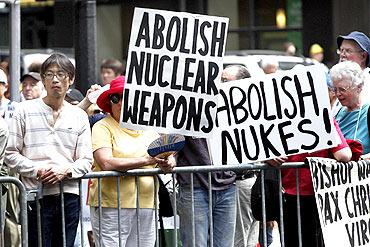
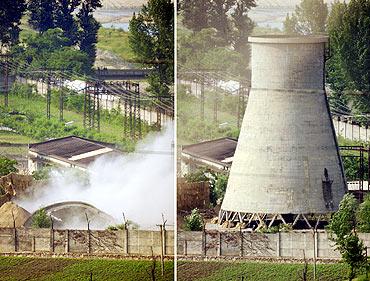
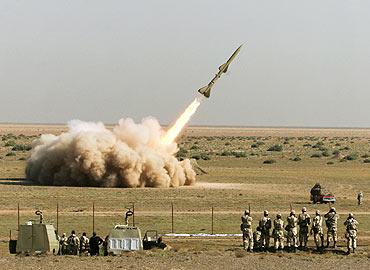
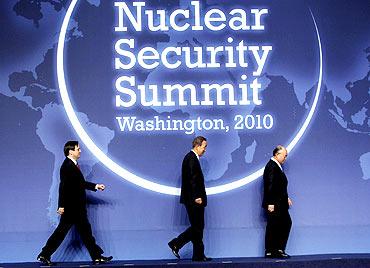
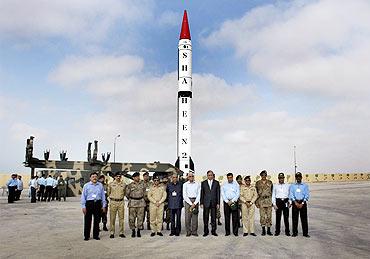
article